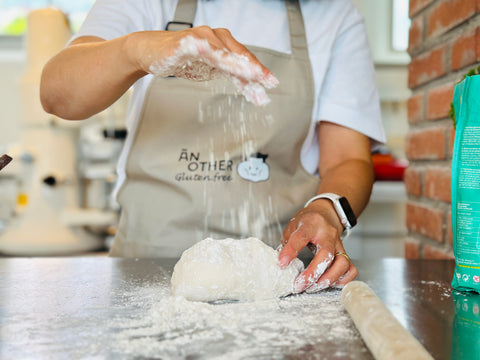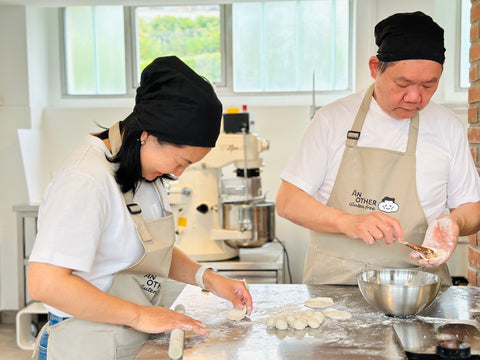
What is gluten
Gluten is a collective term for certain protein components found in grains such as wheat, rye, barley, spelt, and related varieties. It plays a central role in food production, as it gives dough elasticity and stability, thus ensuring the typical structure and volume of bread, pastries, and pasta. Especially in baking, gluten ensures that dough rises well and achieves a pleasant consistency.
For most people, gluten is well tolerated and is a natural part of the diet. However, there are also individuals who must avoid gluten for health reasons. In celiac disease, an autoimmune disease, consuming gluten damages the lining of the small intestine. People with gluten or wheat sensitivity also report symptoms such as bloating, fatigue, or abdominal pain after consuming gluten-containing foods.
Gluten is also an issue that has gained social significance beyond medical considerations. More and more gluten-free products are filling supermarket shelves, as many people are consciously choosing a gluten-free diet even without a medical need – be it for health, dietary, or personal reasons.

Celiac disease – When the body reacts to gluten
Celiac disease is a widespread but often undiagnosed autoimmune disorder in which the body reacts to gluten, a protein found in grains such as wheat, rye, and barley, with an inflammatory response in the small intestine. This reaction damages the intestinal lining, which can significantly impair the absorption of important nutrients such as iron, calcium, and vitamins.
Symptoms range from classic complaints like abdominal pain, bloating, and diarrhea to non-specific signs such as fatigue, skin rashes, or difficulty concentrating. Children can also be affected and may experience growth delays or loss of appetite.
If celiac disease is not diagnosed and treated, long-term consequences such as osteoporosis, anemia, or even an increased risk of certain types of cancer can occur. The only effective treatment currently consists of a lifelong, strictly gluten-free diet, which allows for complete regeneration of the intestinal mucosa and significantly alleviates symptoms. A medical diagnosis and professional nutritional counseling are crucial for the success of treatment.

Our solution
Dumplings are a popular dish in many Asian cuisines, but traditionally they are usually made with wheat flour, which contains gluten. However, for people with celiac disease or gluten intolerance, there are numerous alternatives for making dumplings without gluten. Instead of wheat flour, gluten-free flours such as rice flour, corn flour, buckwheat flour, or special gluten-free flour blends are used. Rice flour is particularly popular because it makes the dough smooth and easy to shape.
It's important to keep a close eye on the consistency of the dough during preparation. Gluten normally provides elasticity and stability – something gluten-free versions lack. Therefore, binding agents such as tapioca or potato starch often help make the dough more elastic and easier to shape. The filling also remains classic: whether vegetables, meat, or tofu – the options are just as varied as with traditional dumplings.
Gluten-free dumplings are delicious when steamed or fried and taste just as good as the original.
Contact points for celiac disease in Switzerland
In Switzerland, there are various support centers for people with celiac disease, offering support with diagnosis, treatment, and everyday life with a gluten-free diet. One of the most important organizations is the Celiac Disease Association of German-speaking Switzerland , which supports those affected with information materials, events, and nutritional advice. Regional groups also exist in French-speaking Switzerland and Ticino, providing support and exchange.
In addition, many hospitals and specialized nutritionists in Switzerland offer individualized advice and support. Pharmacies and health food stores are often trained and can also assist with the selection of gluten-free products. Anyone interested in learning about new research findings, product labeling, or everyday strategies can find valuable tips and support at these locations.


